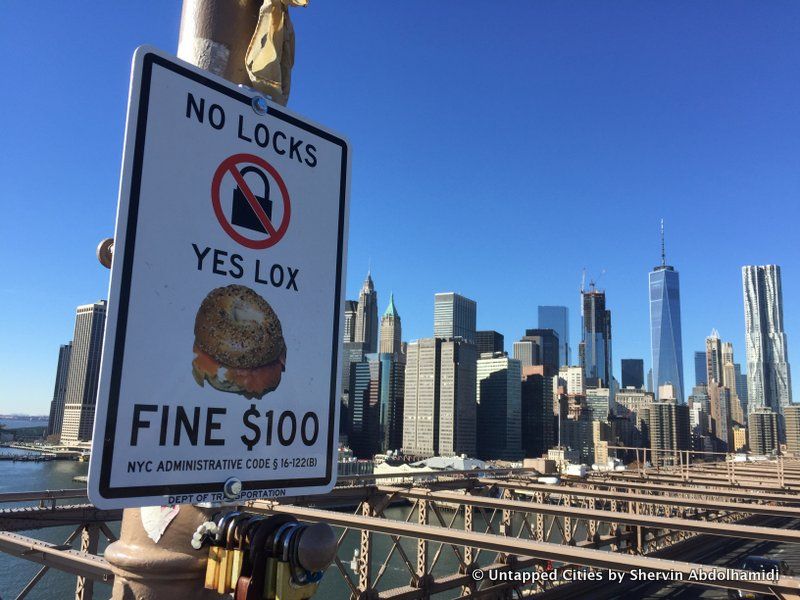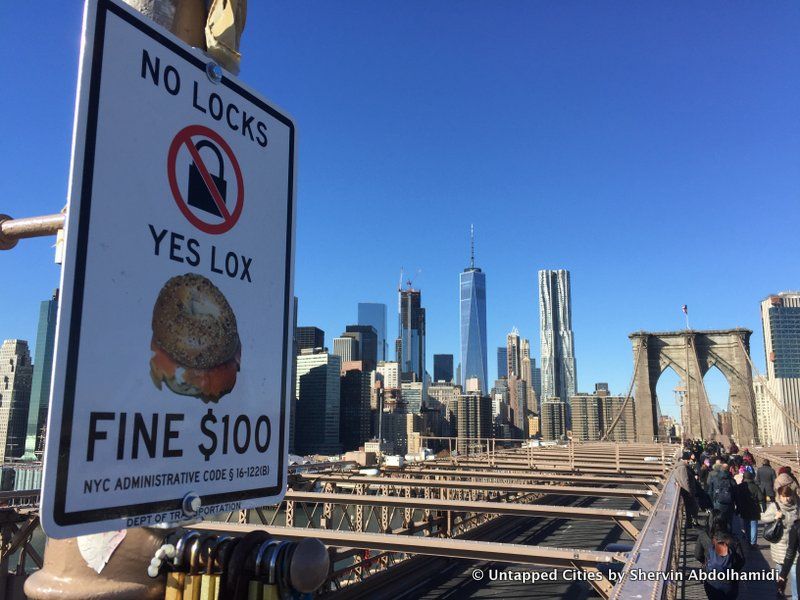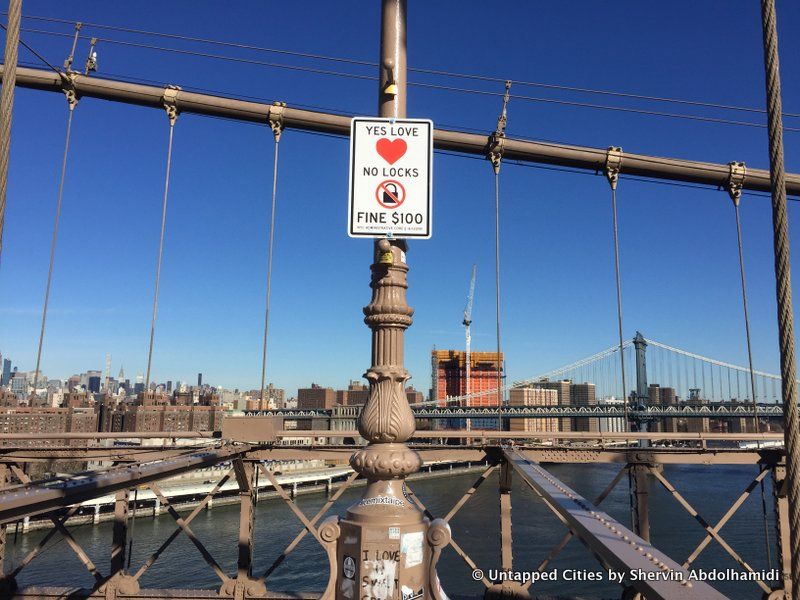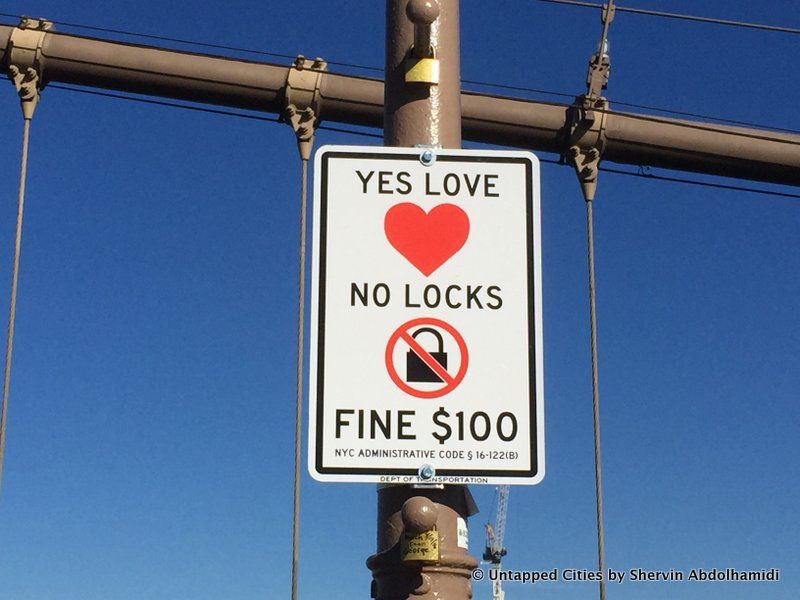Last Chance to Catch NYC's Holiday Notalgia Train
We met the voices of the NYC subway on our nostalgia ride this weekend!



Deep down, Americans love puns. And humans worldwide love those Love Locks, a tradition that comes to us from across the Atlantic Ocean. The practice is said to originate from either Rome, following the release of the movie “I Want You (Ho voglia di te)” based on the book by Federico Moccia, or Paris, where the Pont des Arts and other bridges are similarly embattled. While the locks are signs of eternal love for couples across the globe, they are a scourge to cities and often the structures themselves. The NYC Department of Transportation is regularly dispatching teams to remove the locks off the Brooklyn Bridge, removing over 34,000 since 2013 at a cost of $100,000. The weight of the love locks caused a wire to snap on September 8th this year, leading to extensive delays and repairs.
In response, the NYC DOT launched a new campaign with signage that says, “YES LOX, NO LOCKS,” building upon the borough’s Jewish heritage – which you can also see represented on the welcome signage on Brooklyn’s roadways (Fuhgeddaboudit and Oy Vey, among the most recognizable). The lox bagel shown on the sign is a representation of an actual bagel you can get order at Leo’s Bagels in Manhattan’s Financial District, not surprisingly located near the DOT’s offices.

The signs were made in the DOT’s Sign Shop, located in Maspeth, Queens. John Jurgeleit who oversees the shop and has been on staff for over twenty years, tells Mic.com, “I didn’t think we’d actually put a bagel on a city sign. Every sign you see in the five boroughs, that comes out of my shop.” He was asked to design a whimsical sign, and he sent over the bagel design not thinking it would be approved. It was, in addition to other signage including “YES ♥ , NO LOCKS” and “NO LOCKS EARPHONES TRASH. NO KIDDING!” All signage comes with a warning for a $100 fine.


Next, read about the Top 10 Secrets of the Brooklyn Bridge. Read about the history of street signs in NYC.
Subscribe to our newsletter